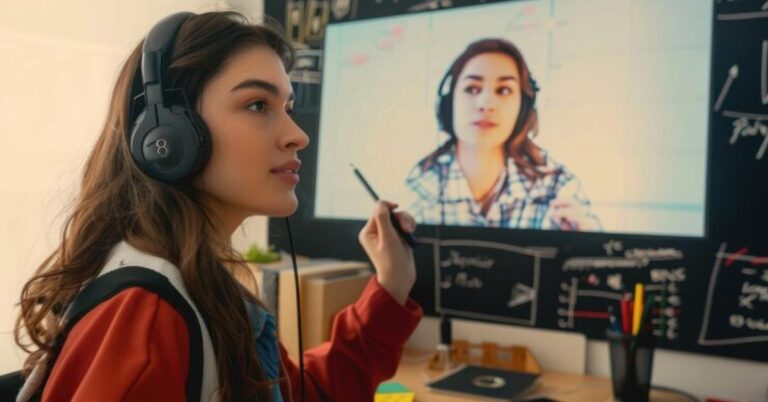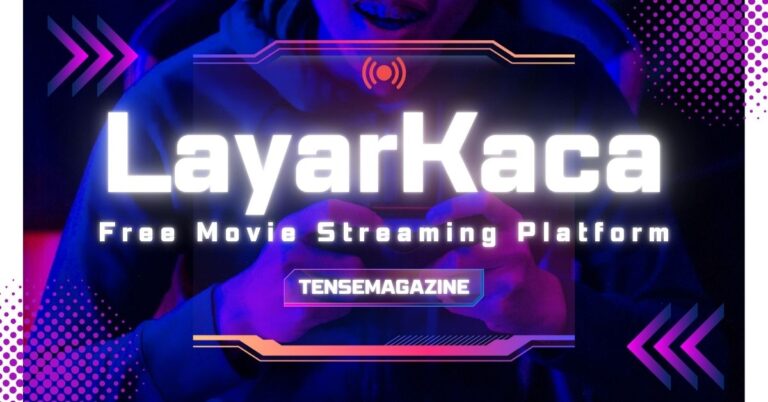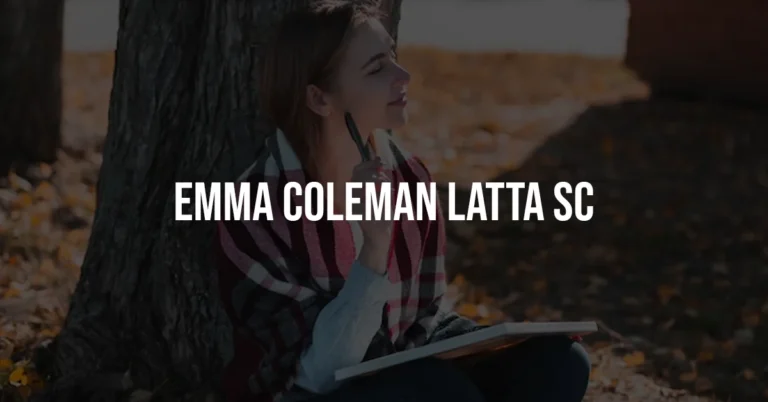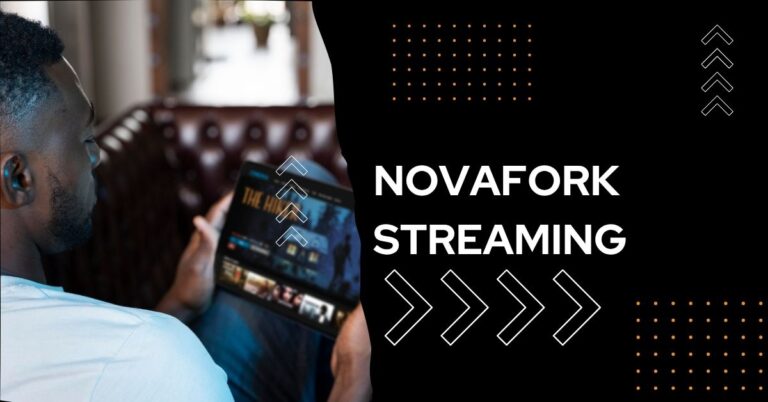Powering Music Education: The Impact of Community Fundraising
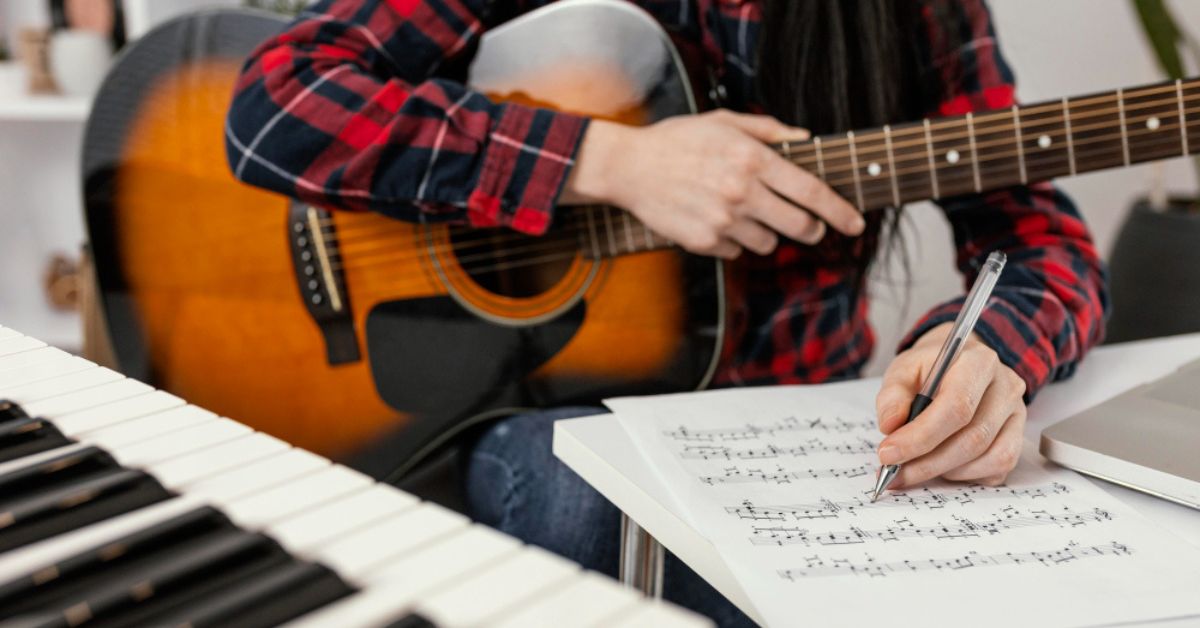
Empowered and galvanized by necessity, communities across the country are proving that collective action is a powerful tool to keep music alive in schools. Through a wide range of innovative initiatives—including benefit performances, digital campaigns, and strategic collaborations with local organizations—parents, educators, and supporters are sustaining music programs and enabling them to thrive and reach even more students. These philanthropic endeavors have become the heartbeat of music education, making it possible for countless young people from diverse backgrounds to find their voices and experience the joy of making music.
Music education is more than just another subject in the school curriculum—it’s a crucial facet of learning that nurtures cognitive development, inspires creativity, and fosters emotional intelligence in students. Immersion in music provides skills far beyond the ability to play an instrument or read sheet music; it has profound effects on brain development and academic behavior, helping students mature into adaptable, well-rounded individuals. However, as school districts confront ever-tightening budgets and increasingly complex resource allocation decisions, the future of music education often hangs in the balance. These persistent financial strains have made fundraising for music education beneficial and necessary. By rallying together, communities are stepping up as powerful advocates, ensuring that music continues to play an integral role in nurturing the next generation of learners.
The Importance of Music Education
Extensive research continues to reveal the multifaceted benefits of music education for children. Participation in music is strongly linked to enhanced academic achievement, improved language and literacy skills, and greater emotional resilience. According to the National Association for Music Education, students who are regularly engaged in school music programs tend to perform better in core subjects such as mathematics and reading, consistently outpacing their non-musical peers on standardized assessments. Beyond academics, music instruction cultivates vital life skills including teamwork, discipline, patience, and self-confidence. Notably, involvement in music often correlates with higher rates of civic engagement and social responsibility, which enhances the overall climate and culture of school communities. By providing students with these experiences, music education serves as an indispensable academic and social asset that continues to yield lifelong rewards.
Challenges Faced by School Music Programs
Despite the abundant research supporting the value of music in education, these programs are often among the first casualties when budget cuts strike. Expenses related to musical instruments, hiring skilled and specialized teachers, acquiring up-to-date educational materials, and funding extracurricular ensembles can be substantial. When schools face tough financial decisions, music is sometimes viewed as non-essential compared to core subjects, making it vulnerable to reductions or elimination. Students lose crucial opportunities for creative exploration and self-expression when these vital programs shrink or disappear. They are also deprived of experiencing the sense of camaraderie, dedication, and accomplishment that comes from group performances and collaborative projects—hallmarks of a comprehensive, well-rounded educational experience. The loss of music programs can also diminish school spirit and community involvement, underscoring how much is at stake when arts funding is threatened.
Community Fundraising: A Lifeline for Music Programs
In the wake of these financial gaps, communities have emerged as essential champions of music education. Community members have repeatedly demonstrated their commitment to sustaining and growing access to musical instruction for all students by organizing grassroots fundraising efforts. One particularly inspiring example comes from the Brooklyn Music School, which was on the brink of closure due to severe budget shortfalls. The local community responded with urgency and creativity, organizing a benefit concert and launching a dynamic crowdfunding campaign. Their determination paid off, raising over $500,000—enough to preserve beloved summer music programs for young musicians across the city. These efforts safeguard educational opportunities and forge a powerful sense of unity and shared purpose. They highlight communities’ deep cultural values in music as a vital part of education. Moreover, they prove that collective action can successfully bridge institutional funding gaps. In doing so, communities are not just saving programs—they’re shaping future generations of artists and innovators.
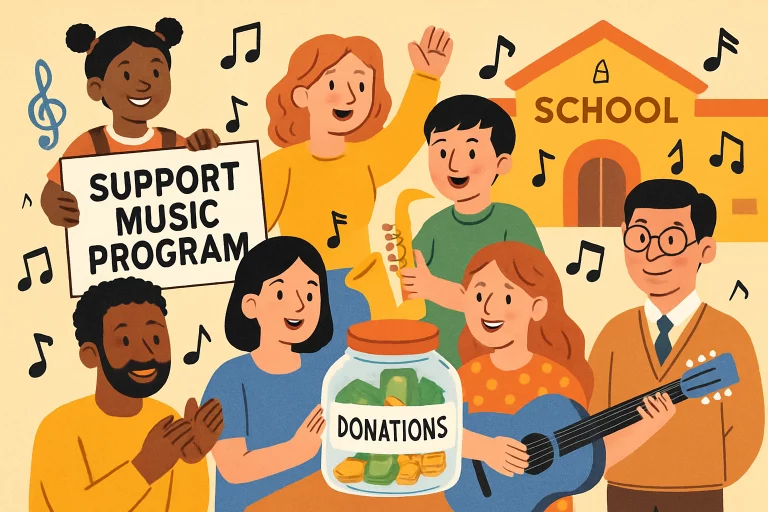
Transparency and Communication
For fundraising efforts to be effective and sustainable, trust is paramount. Donors want to know how their contributions are making a difference, and clear, regular communication is the best way to foster this trust. Being transparent about fundraising goals, how donations are allocated, and the tangible outcomes for students and programs reassures stakeholders and builds lasting support. Whether through detailed newsletters, consistent updates on social media, or in-person community meetings, open communication keeps everyone engaged and informed. Recognizing contributions and celebrating milestones publicly serves to motivate donors, encourage repeated giving, and inspire others to join the cause. Ultimately, fostering a culture of openness strengthens the overall mission and ensures ongoing investment in the future of music education.
Conclusion
Community fundraising has become the linchpin for the survival and growth of music education in schools. When traditional funding is inadequate, the creativity, resilience, and collaborative spirit of parents, students, teachers, and local supporters create new pathways to ensure that every child continues to benefit from quality music instruction. By leveraging effective strategies—from benefit concerts to online campaigns, corporate partnerships, and transparent outreach—these dedicated efforts uphold the right of every student to experience the transformative power of music. More than just meeting budget shortfalls, community-powered support for music education is a celebration of shared values and aspirations, proving that access to music in schools is a vision composed by many, for the enrichment of all.

